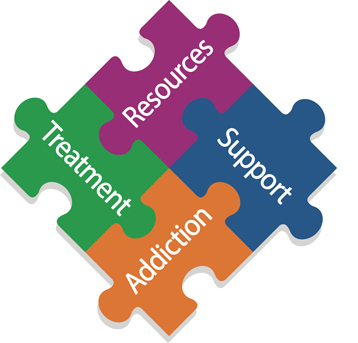Research-backed Cognitive Behavioral Therapy (CBT) is a key component of many recovery plans.
Comprehensive Dependency Therapy Options: An Overview to Alcoholism Healing and the Function of CBT
In the realm of alcohol dependency recovery, the adoption of Cognitive Behavioral Treatment (CBT) along with conventional detoxification and rehabilitation techniques has actually noted a significant evolution in treatment standards. By furnishing individuals with tools to improve maladaptive ideas and responses, CBT boosts the efficiency of their recovery journey.
Exploring the Range of Alcohol Addiction Treatments

The Science and Efficiency of Cognitive Behavior Modification in Addiction Recuperation
Amongst the numerous restorative techniques for alcohol addiction recovery, Cognitive Behavioral Therapy (CBT) stands out due to its well-documented effectiveness. CBT runs on the concept that maladaptive actions and ideas contribute to the upkeep of addiction. CBT's adaptability makes it ideal for a varied array of people, even more confirming its duty recovery treatment centers as a keystone in addiction therapy techniques.
Integrating CBT With Various Other Healing Approaches for Optimal Outcomes
While Cognitive Behavioral Treatment (CBT) verifies very reliable in treating dependency, integrating it with various other therapeutic approaches can improve treatment outcomes. Incorporating CBT with pharmacotherapy, as an example, addresses both emotional behaviors and physical needs, supplying a more holistic strategy. Medications can take care of withdrawal symptoms and food cravings, allowing CBT to focus even more intensively on coping techniques and behavioral adjustment. Furthermore, including peer assistance groups with CBT urges sharing experiences and good understanding, which bolsters emotional strength and recovery commitment. Household treatment can also enhance CBT by improving communication and fixing partnerships affected by addiction. These integrative methods not just enhance the holistic rehab centers east coast individual's ability to avoid alcohol yet also rehabilitation treatment improve general psychological health and wellness and health.

Conclusion
To conclude, comprehensive dependency treatment for alcohol recuperation includes a multifaceted strategy that combines medical, emotional, and holistic methods (fentanyl addiction treatment). Cognitive Behavior Modification (CBT) sticks out as a crucial element, substantially boosting the effectiveness of healing by resolving detrimental thought patterns and habits. By integrating CBT with various other therapeutic strategies, individuals are offered a robust support group, increasing their opportunities of continual recuperation and advertising total psychological durability within a nurturing community environment